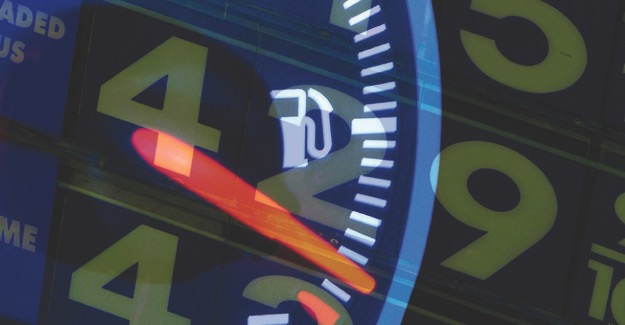Oil price collapse raises prospect of fuel duty escalator
The tumbling price of a barrel of Brent crude oil has raised the prospect of the fuel duty escalator being reintroduced.
In the Budget of 23 March 2011, the Chancellor George Osborne introduced a fuel stabiliser and explained how it would work.
“The Government will abolish the fuel duty escalator and replace it with a fair fuel stabiliser. When oil prices are high, as now, fuel duty will increase by inflation only. UK oil and gas production is more profitable at such times, so it is fair that companies should contribute more. The Supplementary Charge on oil and gas production will therefore increase to 32 per cent from midnight tonight.
“In future years, if the oil price falls below a set trigger price on a sustained basis, the Government will reduce the Supplementary Charge back towards 20 per cent on a staged and affordable basis while prices remain low. Fuel duty will increase by RPI plus 1 penny per litre in each such year. The Government believes that a trigger price of $75 per barrel would be appropriate, and will set a final level and mechanism after seeking the views of oil and gas companies, and motoring groups.
“As the increased rate of Supplementary Charge will only apply when prices are high, the Government will restrict tax relief for decommissioning expenditure to the 20 per cent rate to avoid incentivising accelerated decommissioning. There will be no restrictions to decommissioning relief below this level over the course of this Parliament, and the Government will work with the industry with the aim of announcing further, longer-term certainty on decommissioning at Budget 2012. Recognising the importance of continued investment in the North Sea, including in marginal gas fields, the Government will also consider with the industry the case for introducing a new category of field that would qualify for field allowance.”
However at the Conservative conference in 2013 Mr Osborne said:
“We’ve cut fuel duty. Abolished Labour’s escalator. And I can tell you today that provided we can find the savings to pay for it, I want to freeze fuel duty for the rest of this Parliament.”
Commenting on the apparently contradictory messages coming from the Chancellor, Professor Stephen Glaister, director of the RAC Foundation, said:
“The Chancellor is sending out mixed messages. He has said he will freeze fuel duty until the election, but has also committed to hikes in duty above the rate of inflation if the oil price tumbles. Which is it to be?
“Ironically, some of what motorists have gained from falling oil prices could be taken by the Chancellor. If the cost of oil drops just a few more dollars and Mr Osborne sticks to his 2011 plans then fuel duty is in line for a 1.7p a litre increase. That is unlikely to go down well with 38 million drivers who have recently had some relief at the pumps.”
The possible 1.7p rise in duty is calculated thus:
Current rate of duty is 57.95p.
Annual rate of CPI in September 2014 was 1.2%.
57.95 x 1.2% = 58.65p
58.65p + 1p = 59.65p
Difference = 1.7p
Contact:
Philip Gomm – Head of External Communications – RAC Foundation
[email protected] | 020 7747 3445 | 07711 776448 | 020 7389 0601 (ISDN)
Notes to editors:
The RAC Foundation is a transport policy and research organisation that explores the economic, mobility, safety and environmental issues relating to roads and their users. The Foundation publishes independent and authoritative research with which it promotes informed debate and advocates policy in the interest of the responsible motorist.
The RAC Foundation is a registered charity, number 1002705.


